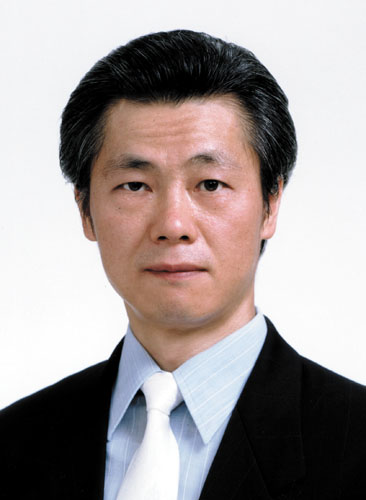TETSUO KANEKO
Technical Advisor
Chiba-ken, Japan
 Born on November 3, 1953, in Chiba-ken, Japan. He
studied physics and chemistry at Chuo University, earning a Bachelor of Science
degree in 1977 and 1980, respectively. He pursued postgraduate work at the same
university, and received a Master’s degree in 1984 for his study on the force acting
upon an ion in an ion-channel.
Born on November 3, 1953, in Chiba-ken, Japan. He
studied physics and chemistry at Chuo University, earning a Bachelor of Science
degree in 1977 and 1980, respectively. He pursued postgraduate work at the same
university, and received a Master’s degree in 1984 for his study on the force acting
upon an ion in an ion-channel.
Mr. Kaneko began his professional career as an Assistant for experiments being conducted at Japan Atomic Energy Research Institute from 1978 to 1980. He then went on to become a Radiation Protection Supervisor for Koto Microbe Laboratory from 1980 to 1982, a Staff Member for Technical Surveys of Japan at NUS Co. Ltd. from 1985 to 1987, and an Assistant for Environmental Measure performed by Tokyo Food Sanitation Association from 1987 to 1993. Mr. Kaneko also served as an Assistant for experiments at Seikei University from 1990 to 1993, a part-time Lecturer at Medic Bio College from 1994 to 1995, a Technical Assistant for IAI Corporation from 1995 to 1997, a PC Operator for DIS System Trading Co. Ltd. from 1997 to 2000, and a Technical Advisor to Kurakenchikuzoukeisha Co. Ltd. since 2000.
Since 1996 Mr. Kaneko’s main interest has consisted of studying percolation in fluids, focusing his attention on density fluctuations, which are induced as both dense and rare regions of particles by attractive forces reacting between particles in fluids. This concept stems from how the generation of a developed non-uniform distribution of particles in a fluid can cause anomalies in properties such as viscosities, electrical and optical properties of metal fluids, electrical conductivities due to charged particles, the thermodynamics, and so on. For his own percolation estimates, each dense region has been regarded as a physical cluster composed of particles constituting each bound pair satisfying a criterion expressed as “what the sum of the relative kinetic energy and pair potential requires to be negative”. In 1998, Mr. Kaneko was successful in demonstrating that such a physical cluster formed by an attractive force, with the effective range being long enough, has a developed fractal structure with the dimension 1.5. Each percolation phenomenon, due to the growth of dense regions to the infinite size, was estimated analytically using a Yukawa-type potential(s). The results of the percolation estimates were published for single-component Yukawa fluids in 1998, Coulomb fluids in 1999, and multi-component fluid mixtures in 2001.
Aside from his vocational duties, Mr. Kaneko holds memberships in a variety of organizations. He is a Life Member of the American Physical Society, and a Member of the American Association for the Advancement of Sciences, Chemical Society of Japan, New York Academy of Sciences, and the Physical Society of Japan. His favorite leisure-time activities include watching soccer games, making wood furniture, and mountain climbing.
Copyright © 2015 The Bibliotheque: World Wide Society